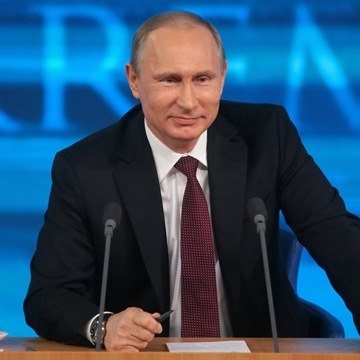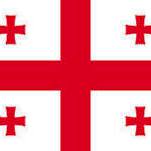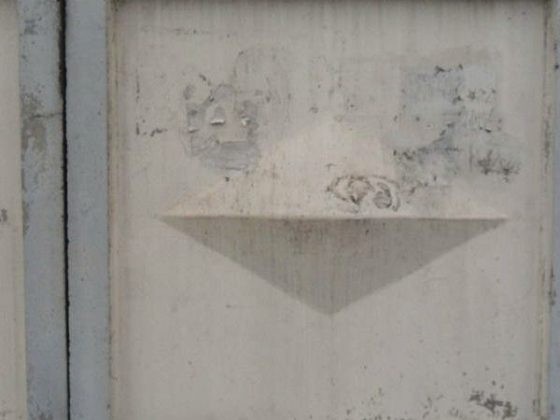(Co-authored by Kinga Niemcyzk) Much of the commentary on Russia’s recent annexation of the Crimea has focused on Russia’s hard power—its geo-political designs in the so-called near abroad, ostensible security vulnerabilities to NATO’s eastward expansion, strategic objectives, and military capabilities. These questions are not moot and have a strong sense of urgency for leaders in Ukraine, Moldova, or even Kazakhstan nervously pondering Russia’s next moves. Yet an excessive focus on the hard aspects of Russia’s power risks obscuring the Kremlin’s skillful manipulation of soft power—a factor perhaps equally important in accounting for the swiftness of “operation Crimea” as the shady men in balaclavas appearing on the peninsula’s shores.
The concept of soft power has in fact gained substantial traction in recent years in Russia’s foreign policy circles, most recently finding its way into the country’s official 2013 Foreign Policy Concept. The Kremlin ideologues’ peculiar interpretation of soft power dismayed Joseph Nye, who developed and popularized the concept. According to Nye, Moscow, like Beijing, did not understand soft power, which is the power to attract and co-opt, rather than coerce or financially induce others to do what you want. In particular, he questioned Russia’s political values; problematized the perceived legitimacy of its foreign policy; and highlighted that society, and not the government is the main instrument of a country’s soft power.
Yet, over the last few years, Putin has shown himself to be a significantly more artful player in the “smart power” game, skillfully combining elements of both soft and hard power in pursuing his foreign policy objectives. Russia’s steep learning curve in manipulating soft power has important policy implications. Soft power, as Nye reminds us, is about attraction. Underestimating the true magnitude of Russia’s attraction to a variety of constituencies and audiences risks further miscalculations of Russia’s intentions by Western policy makers.
One reason for the relative neglect of Putin’s brand of authoritarian soft power is the earlier assumption by many observers—including by one of the authors of this piece—of a teleological process of a gradual diffusion of democracy and associated values among post-communist nations. A growing number of observers of post-communist politics are now reconciling themselves to the reality that some states may be not only “impervious” fortresses against particular external influences, but could become western democracy “resister states,” or even active agents in their own right diffusing their own ideas and understandings as to the structuring, functions, and values of political institutions, the economy, and society.
One example of such non-democratic value projection is the Kremlin ideologues’ concept of “sovereign democracy” whereby states are free to develop their own understandings of democracy, ostensibly suited to the particularities of their historical paths, culture, and tradition. Ivan Krastev maintains that this notion “embodies Putin’s Russian nostalgia for the power of ideological attraction enjoyed by the Soviet Union. . . It embodies Russia’s ideological ambition to be ‘the other Europe’ – an alternative to the European Union.” These ambitions and alternatives are not forward-looking; rather, they derive from the continued hold of Soviet-era symbols among segments of post-Soviet populations. As evidence, note the many monuments to Lenin that continue to dot post-Soviet provincial towns; Soviet-era cultural and linguistic ties binding the former Soviet republics to Russia.
At the center of Russia’s strategy to exert influence in its neighborhood and promote a worldview consistent with Russia’s national interest is state control over popular media outlets and the accessibility of Russian state television channels to Russian-speaking viewers abroad. Russia’s state-controlled television channels reportedly enjoy greater popularity in Belarus and Moldova than those countries’ domestic TV outlets. Nevertheless, it would be inaccurate to portray Russia’s projection of its soft power solely in top-down terms. “If not by tanks then by banks?” reads the title of a paper by a perceptive scholar of Russia’s soft power in the post-Soviet states. Russia’s large economy, fueled by petro-dollars, is highly attractive to the tens of thousands of migrants from resource poor economies in Central Asia, and indeed for those from countries in the Western part of the post-Soviet region like Moldova. The same types of societal “linkages” that arguably facilitate the spread of democracy can have the opposite effect of diffusing authoritarian values when the more economically, culturally, or socially attractive state happens to be Putin’s Russia.
Russia’s soft power thus rests on a peculiar blend of state-promoted ideology of national exclusivity, manipulation of symbols and nostalgia for the halcyon days of the Soviet past, Russia’s genuine economic and political attractiveness for migrants escaping far more ghastly political and economic environments, and Russian-state media whipped up frenzy about an ostensible threat to the Russian ethnos.
Underpinning soft power in foreign policy, Nye argues, are legitimacy and moral authority—resources arguably lacking in Russia’s arsenal of attractions and ostensibly found in abundance in the West. Yet, if there was one issue on which Putin would see eye to eye with many an astute observer of European or American politics, it would be the perception of the fragile and besieged nature of the Western liberal democratic order at home and of the questionable legitimacy of Western states’ policies abroad. “What’s gone wrong with democracy?” quips the cover feature of a recent issue of the Economist magazine. The extent of the demise of the West is of course a matter of debate, yet the Kremlin readily capitalizes on this sentiment to beat the drums of the superiority of his alternative vision of domestic and global order. The underlying premise in the Russian Foreign Policy Concept of 2013 is the perception of the West as a source of instability and danger in the international system—be it through causing economic and financial crises; intervening in regional crises without a UN mandate; or meddling in the internal affairs of sovereign states in the name of democracy promotion.
Joseph Nye has argued that Russia has had to resort to hard power, including military force, partly because of the weakness of its soft power. Yet, given the resonance of the Kremlin’s message—of the decay of the liberal world order, the West’s double standards in the application of international law, and its ostensibly weakening moral authority—among a variety of domestic and external audiences, Putin’s “hard power” could perversely amplify Russia’s soft power. The West should be less worried about the distorted view of reality of one man in the Kremlin, and more about the hold of the messages that he has succeeded in promoting, distorting, or amplifying among the many in the society at home and indeed abroad.











